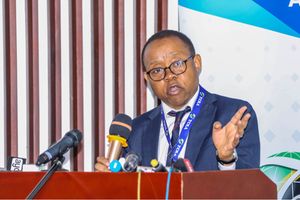Tata plans strong presence in Africa in 2016

Ajay Mehra, executive director at Tata Africa
What you need to know:
“We are already present in 12 nations such as South Africa, Kenya, Ivory Coast, Nigeria, Tanzania, Zambia, Zimbabwe and Uganda, among others. Our presence is more in the Eastern region as it is politically more stable. In 2016 we will be entering Angola in the West and Ethiopia in the Eastern side.
Mumbai. AFP. Tata International, the global trading and distribution arm of diversified Tata Group, will expand its footprint in Africa by entering Angola and Ethiopia, taking its presence to 14 nations in the continent.
“We are already present in 12 nations such as South Africa, Kenya, Ivory Coast, Nigeria, Tanzania, Zambia, Zimbabwe and Uganda, among others. Our presence is more in the Eastern region as it is politically more stable. In 2016 we will be entering Angola in the West and Ethiopia in the Eastern side.
“We will have agri trading, both imports and exports, to begin with, in these markets,” Ajay Mehra, executive director at Tata Africa Holdings (Tanzania) and head of non-auto distribution at Tata International, was quoted by the India’s Economic Times.
Set up way back in 1962, Tata International (TIL)’s key business verticals are sale of leather & leather products, trading in metals & minerals, distribution of auto and allied products, agri-trading (both imports and exports), trading and distribution of industrial chemicals, distribution of drugs & medical devices and IT services along with group company TCS.
TIL also sells footwear and apparel brands, trailer manufacturing, and manufacturing precision metals and plastic parts for the engineering, wireless control and automobile sectors through international alliances.
Recently it entered into a strategic alliance to manufacture and distribute the US-based Aerosoles brand of footwear here.
TIL reported a $2.2 billion turnover in 2014-15, up from $1.7 billion in 2013-14 and expects a growth of around 15 per cent this fiscal year, Mehra said, and attributed primarily the lower growth in turnover to the steep fall in the prices of metals in the year.
He said almost 80 per cent of the $2.2-billion income came in from auto sales, which includes Tata Motors’ JLR as well as John Deere brand of tractors apart from Tata-Hitachi brand of construction equipment, earthmovers etc.




